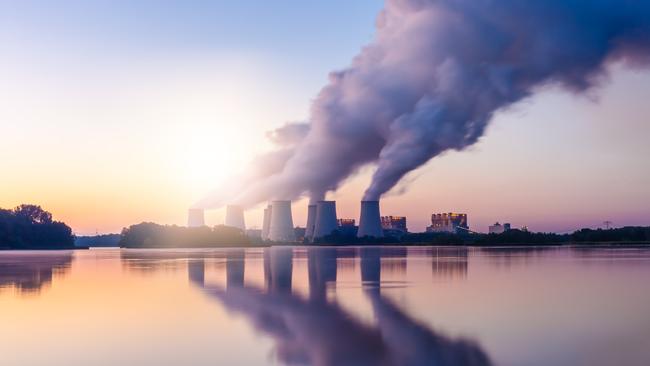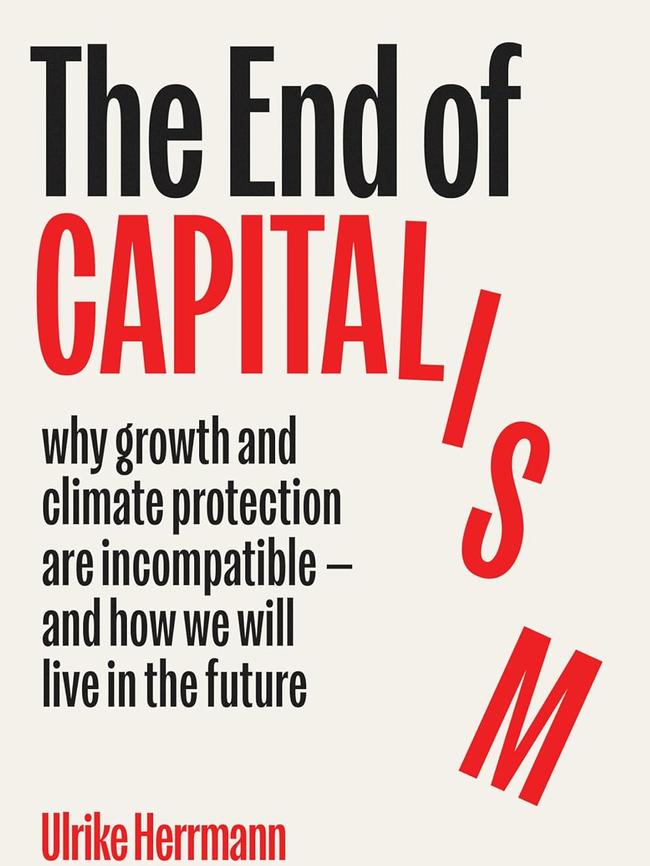Why this radical approach to tackling the climate crisis will end in ruin
A new book, by one of Germany’s green-left darlings, argues that we, the capitalist West, need to revive the Blitz spirit of World War II England. Our contemporary emergency is not genocidal Nazism – it’s is climate change.

My father’s first memory is of Germans trying to kill him. From twenty thousand feet. He was a toddler in London during the Battle of Britain. His mother, her husband already fighting overseas, refused to allow him to be evacuated to the countryside. He remembers the rationing of food. His two older brothers would scrap with him over bread and butter. But he grew up lean and carried this good health into his old age. He is still with us, deaf (mostly selectively) but still standing, eight decades after the Luftwaffe targeted him.
A new book, by a German green politician/journalist, argues that we, the capitalist West, need to revive the Blitz spirit of World War II England. Our contemporary emergency is not genocidal Nazism. It is climate change. The analogy is explicit. Just as Winston Churchill saved democracy by its suspension, so too can our leaders save us from climate catastrophe by government expansion.
“Greenhouse gases,” like the Nazi hordes, “are increasing dramatically and unchecked.” And, as with the Nazis, they must be confronted by expansive government power. The Brits made do with the essentials and thrived. We need to make them “our model”. If we don’t, we’ll be inevitably overrun by an enemy as impervious to our desires as was Adolf Hitler. This is Ulrike Herrmann’s argument in a nutshell.
No, I wasn’t much convinced either.

Born in Hamburg in 1964, the author is widely read in Germany (the book is a translation). This is her fifth – all bestsellers in her homeland. Her appeal down here might be limited to the few Greens/teal suburbs where guilt over material wealth is assuaged by acknowledgements of country and hobbyist climate action.
The book, though, is intriguingly, not really for them. The “Greal” (my neologism) worried wealthy are part of the problem, says the author. They indulge the “illusion of green growth”. All growth, green or otherwise, moves doomsday closer. It is thus only the titular End of Capitalism (and its attendant growth requirement) that offers us salvation.
Or, as a puff on the cover simplifies: end capitalism before capitalism ends us. And what teal is going to win moderate Liberal votes this autumn with that campaign slogan?
Labor’s Chris Bowen won’t like her dismissal of renewables as a panacea: battery storage is an insurmountable problem in the time we have; the energy transformation will be prohibitively expensive; technological innovation (including nuclear power) “cannot save the climate”, she insists. Solar and wind power are “unfortunately unreliable”.
Only big government regulating our access to things that cause carbon emissions can enhance (without ever guaranteeing) our survival prospects. This is less her preference (though it is) than it is already accepted policy: “The ‘survival economy’ has already begun,” she reminds us. Look at how we ration water. In periods of drought, the Germans euphemistically enforce a “water use hierarchy” – rationing by another name.

The book attempts a long-overdue green realism. Herrmann, trained as a banker, speaks a language capitalists understand. She acknowledges that green overreach – from meat-free days to EV mandates – just will not win popular (let along populist) approval. While this is a welcome change from the usual faith-based environmentalism – repent or ye are all doomed – Herrmann is seeking much the same: the use of progressive governmental power to check our acquisitive impulses: “Humanity can only survive if it stops emitting greenhouse gases.”
Mankind has linked his moral turpitude to changes in the weather since Noah’s Ark. Herrmann is part of this tradition: forgo our avarice or we will be taken at the flood. But haven’t greens made the task much harder for themselves by becoming key enforcers of a rainbow lanyard orthodoxy?
Herrmann is right, arguments about climate action should target conservative (think what that word means) sensibilities: look what we will lose unless we moderate our consumption. Instead, Australian Greens have increased the price of membership. “Trans-rights are non-negotiable” and “Israel is a war criminal”. Why do we have to accept these tendentious claims to join their war on climate change? Isn’t the emergency enough without these add-ons? Why must climate be made part of the culture war? Herrmann is sympathetic to this disaggregation. German Greens have become savvy operators; Australian Greens are political children.
But she would also empower Adam Bandt. His finger wagging about cheap air travel, in Herrmann’s vision, would be replaced by his legislative powers – as deputy PM – to enforce the rationing of flights. Aussie battlers would inevitably be priced out of their Bali breaks. The war strategies of Churchill and Bandt, an analogy Herrmann is keen to foster, both target airplanes (Junkers and JetStar, respectively), an irony the author misses.
Churchill won World War II but lost re-election a few months later. And there’s the rub. Herrmann’s de-growth solutions can’t be subject to too much popular validation – because they will not receive it. Her Blitz spirit must be imposed with as few democratic checks as possible. How tenable is such a prescription for meeting a threat that commands none of the popular (as opposed to scientific) consensus that the Axis powers did?
The Britain of my father’s childhood, that stood bravely against the Axis, was much more homogenous. Immigration in the first quarter of this century (in which the island took in more foreign born than it did in total between 1066 and 2000) has largely undone all that. Where, in a fractured, multi-ethnic, increasingly unassimilated UK, would the Blitz spirit come from? Climate change is just never going to be the menace necessary to override the decades of social dislocation successive governments – Labour and Conservative – fostered via open borders.
There is a Brexit spirit, for sure. But this is not the communitarian spirit Herrmann has in mind. Her own Germany has experienced mass immigration in an even more concentrated form in recent years. Is she confident that the million asylum seekers who entered Germany in 2015 would accept the end of capitalism? Didn’t they cross continents to be part of the economic prosperity made possible by cheap energy? Greens telling them that the privations they fled will be good for them is a tough sell.
And, if convincing Germans of her thesis were not hard enough, imagine how well it will go down in China and India.
Could any democratic government just enforce a war economy – to defeat an odourless, colourless gas – when its salesmanship inevitably fails? Almost certainly not. The end of capitalism would entail not the suspension but the end of democracy and, in a tweaking of Marxist theory, a Dictatorship of the Environmentalist. The author’s readable plea invites, without ever articulating, this inevitable corollary. The book is a new, green Road to Serfdom. Unlike Friedrich Hayek’s 1944 masterpiece, hers is a roadmap rather than a warning.
Timothy J. Lynch is professor of American politics at the University of Melbourne




To join the conversation, please log in. Don't have an account? Register
Join the conversation, you are commenting as Logout